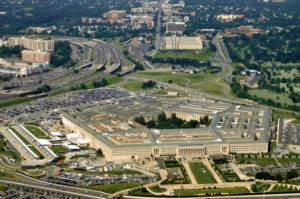By Marina Malenic Seeking to trim costs under Defense Secretary Robert Gates' efficiency initiative, the Missile Defense Agency is examining the possibility of opening tens of billions of dollars worth of contracts to industry competition. While the agency has been relying heavily on sole-source contracts, Army Lt. Gen. Patrick O'Reilly, the agency's chief, said he is looking at over $37 billion worth of contracts and plans to make changes, including changing cost-plus deals to fixed-price arrangements and opening up some…
Contract Updates
R&M Government Services (Las Cruces, New Mexico) – $23,894,784
R&M Government Services,* Las Cruces, New Mexico, has been awarded a maximum $23,894,784 firm-fixed-price, indefinite-quantity contract for battery compartments. This was a sole-source acquisition using justification 10 U.S. Code 3204 (a)(1), as stated in the Federal Acquisition Regulation 6.302-1. This…
L3Harris Technologies Inc. (Clifton, New Jersey) – $9,571,947
L3Harris Technologies Inc., Clifton, New Jersey, is being awarded $9,571,947 for a firm-fixed-price contract for the procurement of 74 radio frequency amplifiers in support of Navy F/A-18E/F/G aircraft. The contract does not include an option provision. All work will be…
Sikorsky Aircraft Corp. a Lockheed Martin Co. (Stratford, Connecticut) – $21,600,000
Sikorsky Aircraft Corp., a Lockheed Martin Co., Stratford, Connecticut, is awarded a not-to-exceed $21,600,000 cost reimbursable undefinitized order (N0001926F1016) against a previously issued basic ordering agreement (N0001923G0002). This order provides for instantaneous access to 105% Transient Engine Torque test and…
Amentum Mitie Pacific LLC (Chantilly, Virginia) – $85,236,794
Amentum Mitie Pacific LLC, Chantilly, Virginia, is awarded an $85,236,794 fixed-price-award-fee, indefinite-delivery/indefinite-quantity contract for base operating support services at Navy Support Facility, Diego Garcia. Work will be performed at Diego Garcia, British Indian Ocean Territory, and is expected to be…












